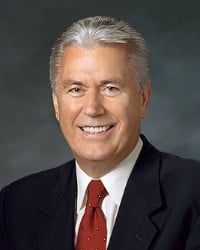
What we love determines what we seek. What we seek determines what we think and do. What we think and do determines who we are — and who we will become.
LDS Quotes on Change

What we love determines what we seek. What we seek determines what we think and do. What we think and do determines who we are — and who we will become.
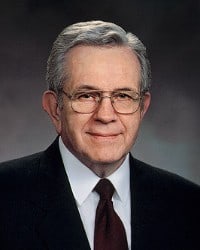
“The study of the doctrines of the gospel will improve behavior quicker than a study of behavior will improve behavior.”
| “Do Not Fear”
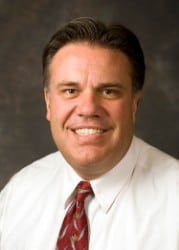
“When we’re tempted to give up, we must remember God is long-suffering, change is a process, and repentance is a pattern in our lives.”
| The Continuous Atonement
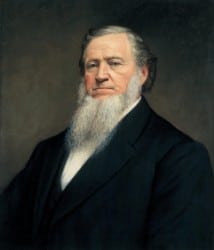
“Do not throw away a man or a woman, old or young. If they commit an evil today and another tomorrow, but wish to be Saints and to be forgiven, do you forgive them, not only seven times, but seventy times seven in a day, if their hearts are fully set to do right. Let us make it a point to pass over their weaknesses and say, “God bless you in trying to be better in time to come,” and act as wise stewards in the kingdom of God.”
| Journal of Discourses, 8:368

The miracle of the Atonement is not just that we can go home but that—miraculously—we can feel at home there. If Heavenly Father and His Son did not require faith and repentance, then there would be no desire to change.
Think of your friends and family members who have chosen to live without faith and without repentance. They don’t want to change. They are not trying to abandon sin and become comfortable with God. Rather, they are trying to abandon God and become comfortable with sin.
If the Father and the Son did not require covenants and bestow the gift of the Holy Ghost, then there would be no way to change. We would be left forever with only willpower, with no access to His power. If Heavenly Father and His Son did not require endurance to the end, then there would be no internalization of those changes over time. They would forever be surface and cosmetic rather than sinking inside us and becoming part of us—part of who we are. Put simply, if Jesus didn’t require practice, then we would never become Saints.
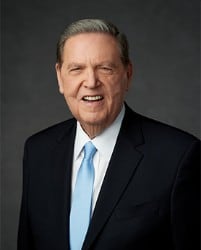
“First of all, if in the days ahead you not only see limitations in those around you but also find elements in your own life that don’t yet measure up to the messages you have heard this weekend, please don’t be cast down in spirit and don’t give up. The gospel, the Church, and these wonderful semiannual gatherings are intended to give hope and inspiration. They are not intended to discourage you. Only the adversary, the enemy of us all, would try to convince us that the ideals outlined in general conference are depressing and unrealistic, that people don’t really improve, that no one really progresses. And why does Lucifer give that speech? Because he knows he can’t improve, he can’t progress, that worlds without end he will never have a bright tomorrow. He is a miserable man bound by eternal limitations, and he wants you to be miserable too. Well, don’t fall for that. With the gift of the Atonement of Jesus Christ and the strength of heaven to help us, we can improve, and the great thing about the gospel is we get credit for trying, even if we don’t always succeed.”
| “Tomorrow the Lord Will Do Wonders among You”
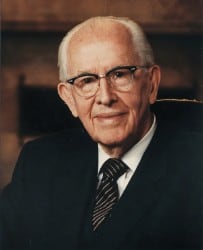
“. . . we must be careful, as we seek to become more and more godlike, that we do not become discouraged and lose hope. Becoming Christlike is a lifetime pursuit and very often involves growth and change that is slow, almost imperceptible. The scriptures record remarkable accounts of men whose lives changed dramatically, in an instant. . . . But we must be cautious as we discuss these remarkable examples. Though they are real and powerful, they are the exception more than the rule. For every Paul, for every Enos, and for every King Lamoni, there are hundreds and thousands of people who find the process of repentance much more subtle, much more imperceptible. Day by day they move closer to the Lord, little realizing they are building a godlike life. They live quiet lives of goodness, service, and commitment. They are like the Lamanites, who the Lord said “were baptized with fire and with the Holy Ghost, and they knew it not.”
| “A Mighty Change of Heart,” Ensign, October 1989, p. 2
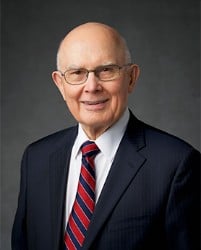
“Under the law of the Lord, a marriage, like a human life, is a precious, living thing. If our bodies are sick, we seek to heal them. We do not give up. While there is any prospect of life, we seek healing again and again. The same should be true of our marriages, and if we seek Him, the Lord will help us and heal us”
| (2007, May). Divorce. Ensign, 37(5), 70–73.
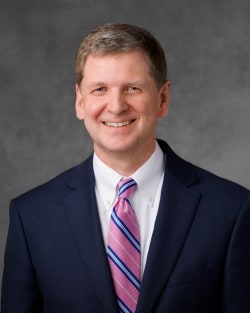
Would Alma truly have felt what he describes as ‘exquisite … joy’ if he thought that Christ saved him but left forever harmed those he had led away from the truth? Surely not. For Alma to feel complete peace, those he harmed also needed the opportunity to be made whole.
| Ensuring a Righteous Judgment - General Conference 2020
